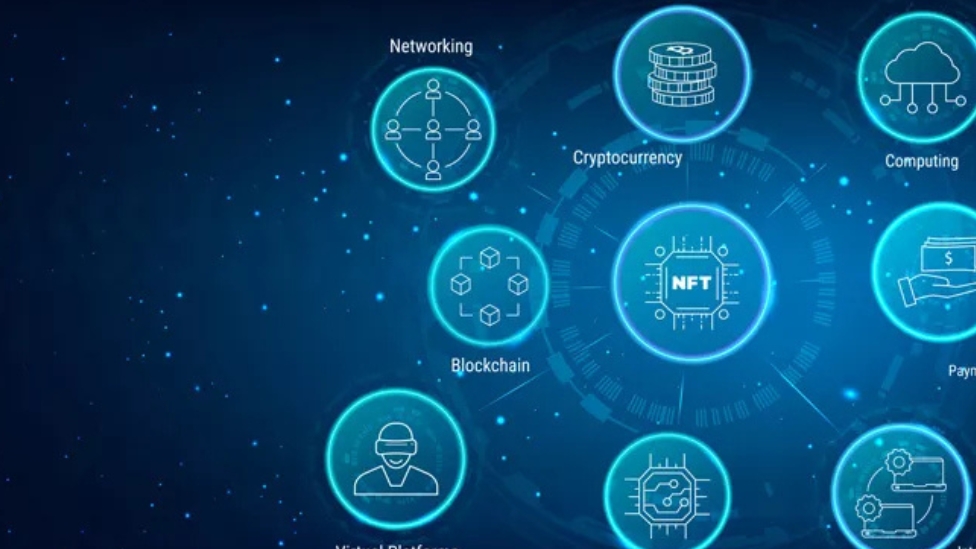Blockchain technology is radically changing the loan processing industry, which has historically been hampered by inefficient procedures and voluminous documentation. Blockchain is providing previously unheard-of levels of efficiency, security, and transparency with its decentralized and unchangeable ledger. The automation of loan processing is strengthened when combined with AI-driven technologies, opening the door for revolutionary advancements in the financial services industry.
Blockchain’s Function in Loan Processing
A decentralized ledger system that records transactions in an unchangeable way is made possible by blockchain technology. This invention tackles a number of significant issues facing the loan processing industry:
Increased Security
The unchangeable ledger of blockchain guarantees data integrity and guards against fraud and manipulation.
Openness
Lenders, borrowers, and regulators all have access to a single, trustworthy source of information.
Quicker Transactions
By automating loan agreements, smart contracts decrease manual intervention and expedite approvals.
New Developments in Blockchain Technology for Loan Processing
Automated Loan Agreements Using Smart Contracts
Self-executing agreements with provisions directly incorporated into code are known as smart contracts. These agreements:
Remove middlemen to cut expenses.
When the borrower gives their consent, enable automatic fund disbursements.
Permit repayment schedules to be tracked in real time.
Decentralized Verification of Identity
Blockchain enables safe, decentralized identity verification, which streamlines Know Your Customer (KYC) and Anti-Money Laundering (AML) procedures. Verified credentials can be shared by borrowers without needing to submit the same paperwork twice.
Asset Tokenization for Loans
By converting loan assets into blockchain-based digital tokens, tokenization makes it possible for:
ownership of loan portfolios by fraction.
greater lender liquidity.
Credit Scoring Powered by Blockchain
People without traditional credit histories are frequently overlooked by traditional credit scoring. To provide more equitable credit ratings, blockchain compiles information from multiple sources, including utility payments and rental history.
Processing Cross-Border Loans
Blockchain reduces transaction costs and eliminates the hassle of currency conversion for foreign loans. Smart contracts guarantee adherence to regional laws.
How Blockchain in Loan Companies Is Improved by AI
AI-Assisted Risk Evaluation
AI assesses borrower data, including spending and income trends, to assess risk. Blockchain increases the accuracy of loan underwriting by ensuring that the data utilized is validated and impenetrable.
Analytics to Predict Loan Defaults
AI uses past data and behavioral patterns to forecast probable loan defaults. Blockchain ensures that the data used is reliable and secure.
Fraud Identification
Anomalies in borrower behavior or document submissions are detected by AI systems. When combined with the transparency of blockchain, fraud risks are greatly decreased.
Making Decisions in Real Time
When combined with blockchain-stored data, AI tools enable prompt decision-making, accelerating the loan lifetime.
Case Studies: The Operation of Blockchain
Streamlined Mortgage Procedures
By using blockchain technology and smart contracts to automate the process, a large bank cut down the time it took to approve mortgages from weeks to hours.
Platforms for Peer-to-Peer (P2P) Lending
Blockchain-based peer-to-peer (P2P) networks promote confidence between lenders and borrowers by guaranteeing transparency in interest rates and repayment arrangements.
Microlending to Unbanked People
Through the use of decentralized credit scoring algorithms for equitable evaluations, blockchain and artificial intelligence allow microfinance firms to offer loans to underbanked groups.
Problems and Fixes
Scalability
Blockchain networks may experience stress from large transaction volumes. These problems are being addressed by solutions like sharding approaches and Layer-2 scaling.
Adherence to Regulations
Adoption is hampered by disparate international blockchain rules. Governments and the commercial sector are working together to develop uniform frameworks.
Connecting Legacy Systems
It is difficult to integrate blockchain technology with conventional banking institutions. APIs and middleware are making integration easier.
Blockchain’s Potential in Loan Processing
Autonomous Decentralized Organizations (DAOs)
By automating decisions through decentralized governance and facilitating direct communication between lenders and borrowers, DAOs have the potential to completely transform the loan processing industry.
Improved AI and Blockchain Cooperation
Future advancements will provide real-time insights into borrower characteristics and financial trends by further integrating AI and blockchain.
Eco-Friendly Blockchain Solutions
Green blockchain solutions are emerging to save energy use while preserving security as sustainability becomes more important.
By guaranteeing security, effectiveness, and transparency, blockchain is transforming the loan processing industry. It improves borrower experiences, decision-making, and risk management when paired with AI. The future of loan automation is bright as blockchain-powered credit scoring, smart contracts, and decentralized identity verification gain traction. By adopting these advancements, financial institutions will open up countless opportunities.




























